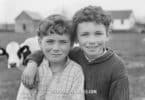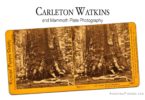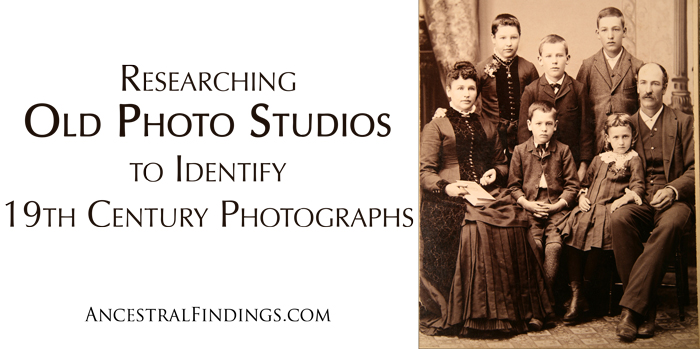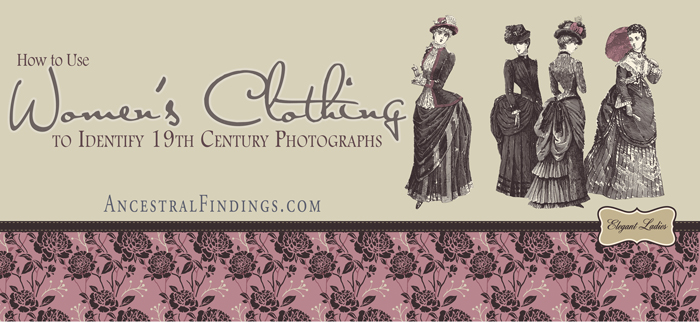Locating old family photos is one of the primary goals for genealogists. Once the names and dates start coming in through basic research, it is only natural to want to know what these distant ancestors, who carried your genes and passed them on to you, looked like. Photography, as we know it today, was invented in 1839, and if you are very lucky, you might find old family photos from the 1840’s and 1850’s. However, photography was expensive back then, and portraits were usually only done by those who were wealthy or of the upper-middle-class ranks, though sometimes families might have gathered money together to get a picture done for a special occasion. One popular reason for those of lesser financial means getting pictures done before the Civil War was to preserve the physical image of an elderly relative before they pass away. Strangely, this older generation did not think much of photography, and usually only did it to please their families. To them, it was a newfangled technology without much practical use, much as our grandparents and great-grandparents sometimes think of the Internet and cell phones today.
You are far more likely to find family photos of your family beginning around the time of the Civil War. Photography was becoming more of a middle-class thing by then and had become popular enough to become affordable to the average income citizen. Men who were going off to fight in the Civil War often had their pictures taken to give to girlfriends, wives, and other loved ones before they left for the battlefields. It was during this era that it became possible to make many copies of the same portrait; before that, each picture was unique. Women also had their pictures taken for their boyfriends, husbands, brothers, and sons to take with them to war.
By the time the Civil War was over, photography was firmly a part of American society, and going to a portrait studio to get an individual or family portrait done every now and then was not uncommon. However, it wasn’t until the early 20th century that personal cameras became available and took photos out of the studio and into our ancestors’ real lives.
If you are looking for photos of your ancestors that you believe exist but were not handed down your family line, there are ways to find them. Not every photo that was ever taken has survived the decades and not every one that still exists can be identified. Photos have numerous ways they could have been destroyed over the generations, and not every photo was labeled (and not everyone who knew the identity of people in photos is still alive or able to talk to you). But, you might still be surprised at some of the photographs that DO exist out there.
Here are some places you can start looking.
Ancestry.com: They have a feature that allows users to upload photographs of ancestors. If distant branches of your family are using Ancestry.com, they may have uploaded photos you don’t have. It is a good idea to enter your ancestors’ names one by one and filter by entries that contain photographs. I found a lovely photograph of my great-grandmother’s maternal grandparents this way (I already had a photo of her paternal grandparents that belonged to her). Her mother was the youngest in the family, and the photo of the grandparents had passed down the line of the oldest child in the family. I was surprised and delighted to discover how much my great-grandmother resembled her maternal grandmother.
DeadFred.com: This is a website that hosts unidentified old family photographs that users upload. Users who recognize the people in the photographs have the option to publicly identify them. You can go on the site and search for photos of your ancestors using first and last names, or just surnames, and get a list of photographs other users have identified with those names. You can request photos of certain people be uploaded, and if anyone has the photo and sees your request, they may do it. You can also upload any unidentified old family photos you may have and hope someone out there can identify them for you.
Old Newspapers: Looking through old newspapers can often yield photographs of your ancestors. They may not have sat for professional portraits but may have had their photograph taken for a newspaper article. Looking at old newspaper websites like Newspapers.com, Archives.com, and GenealogyBank.com, and searching by first and last name (or just surname) can often produce miraculous results in the way of photographs. The only known photograph of one of my great-great-grandfathers was discovered this way, with a photo of him attached to his 1916 obituary. No branch of the family I’ve contacted in person or online has the original, and it appears to have disappeared from history. But, the photo existed once and was reproduced in the newspaper, where many of his descendants have now obtained it. Ancestry.com also has a collection of old newspapers that may have photographs in them, but their collection is more limited in scope than the other sites. Still, it is worth looking at them all to locate those elusive photos.
Old Wills: This one requires a little bit more research, but is worth it for the photographic prize it may yield. Because photographs were so rare in the 1800’s and early 1900’s, it is possible that someone who had their photograph taken only had one done, and that is the only existing image of them. This made photographs precious to our ancestors, and they were often handed down in wills. I’ve seen numerous examples of this. Look at the old wills of your ancestors who lived within the age of photography, and see if they bequeathed any photos. If they did, and it was not to your direct line, then research the line the photograph was bequeathed to. Research them to the present, and contact them. They might not still have the photograph after a few generations, but they might, or know who does have it, and they might be willing to share a copy of it with you. To find genealogical gold like a photograph of a previously unseen ancestor, this is well worth doing. You know the photograph existed because of its mention in the will. Use your genealogical skills to track it into the present.






